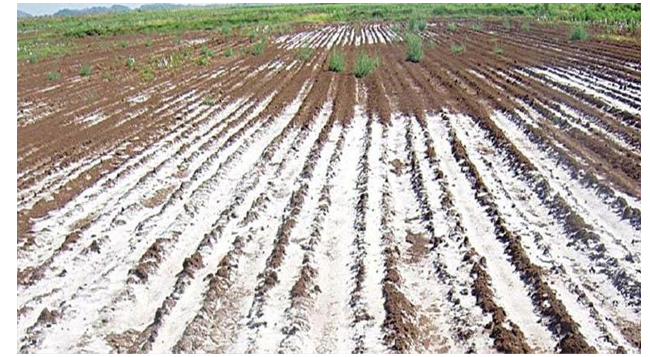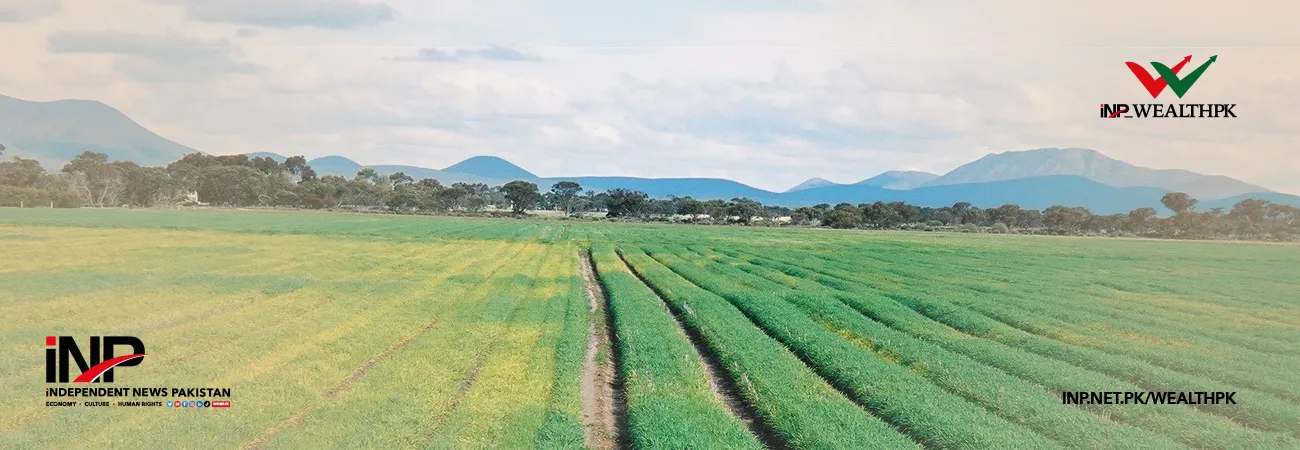INP-WealthPk
Muhammad Saleem

Saline regions of Pakistan can be used to cultivate salt-tolerant crops to ensure sustainable agriculture. This task can be achieved if government, researchers, farmers and the private sector collaborate. This was stated by Dr Khan, a faculty member at the University of Agriculture Faisalabad. Talking to WealthPK, he said salinity was hitting millions of acres of agricultural land in Pakistan, particularly in Punjab and Sindh. “We are losing arable land due to multiple factors, mainly salinity and climate change.” He warned: “If we do not tackle the issue immediately, we will inevitably face food shortages.” He said salinity was a silent killer of farmland in Pakistan, and farmers and agricultural experts had been sounding the alarm for decades, but without an effect. “People at the helm of affairs seem to have turned a blind eye to the menace.” “The menace is eating up swathes of agricultural land in Pakistan, diminishing productivity and soil quality. Climate change is wreaking havoc on our agriculture, and we need to be prepared to take the bull by the horns.”
Dr Ali, an official of the Ayub Agriculture Research Institute, Faisalabad, told WealthPK that farmers in the saline regions were facing multiple challenges. “Scores of salt-tolerant crop varieties have been developed by researchers, but farmers have limited or no access to such specialised seeds.” “Without equipping farmers with the latest knowledge, we cannot tackle the emerging challenges,” he said, adding that a huge knowledge gap existed between farmers and experts. He said farmers could no longer rely on decades-old cultivation methods and they had to learn modern techniques for growing salt-tolerant crops. He also said lack of awareness and training was a big constraint as farmers didn’t know optimal cultivation, irrigation and management methods to enhance their yields. Ali said that saline regions required the immediate attention of the government as an effective irrigation system was crucial for cultivation of salt-tolerant crops.
Similarly, he noted that efforts should also be made to ensure farmers have access to markets so they can reap a good return on their investments. Safdar Raza, a farmer who migrated to Faisalabad from a saline region in Sindh, said salinity had affected his land and reduced crop yields. “We could not find a proper solution to the issue despite ensuring effective use of water, pesticides and fertilizers. Like me, scores of farmers have stopped cultivating their lands due to increasing salinity.” “Whenever any affordable solution will be available in the market, I will surely give it a whirl,” he said. Safdar said the government should pull out all the stops to ensure the availability of quality seeds for salt-tolerant crops, modern training of farmers and ensuring their direct linkages to markets. Dr Khan of the Faisalabad varsity said that multiple resources were available to arm farmers to battle the menace. He said that agricultural universities should be asked to introduce salt-tolerant seeds.
Credit: INP-WealthPk













